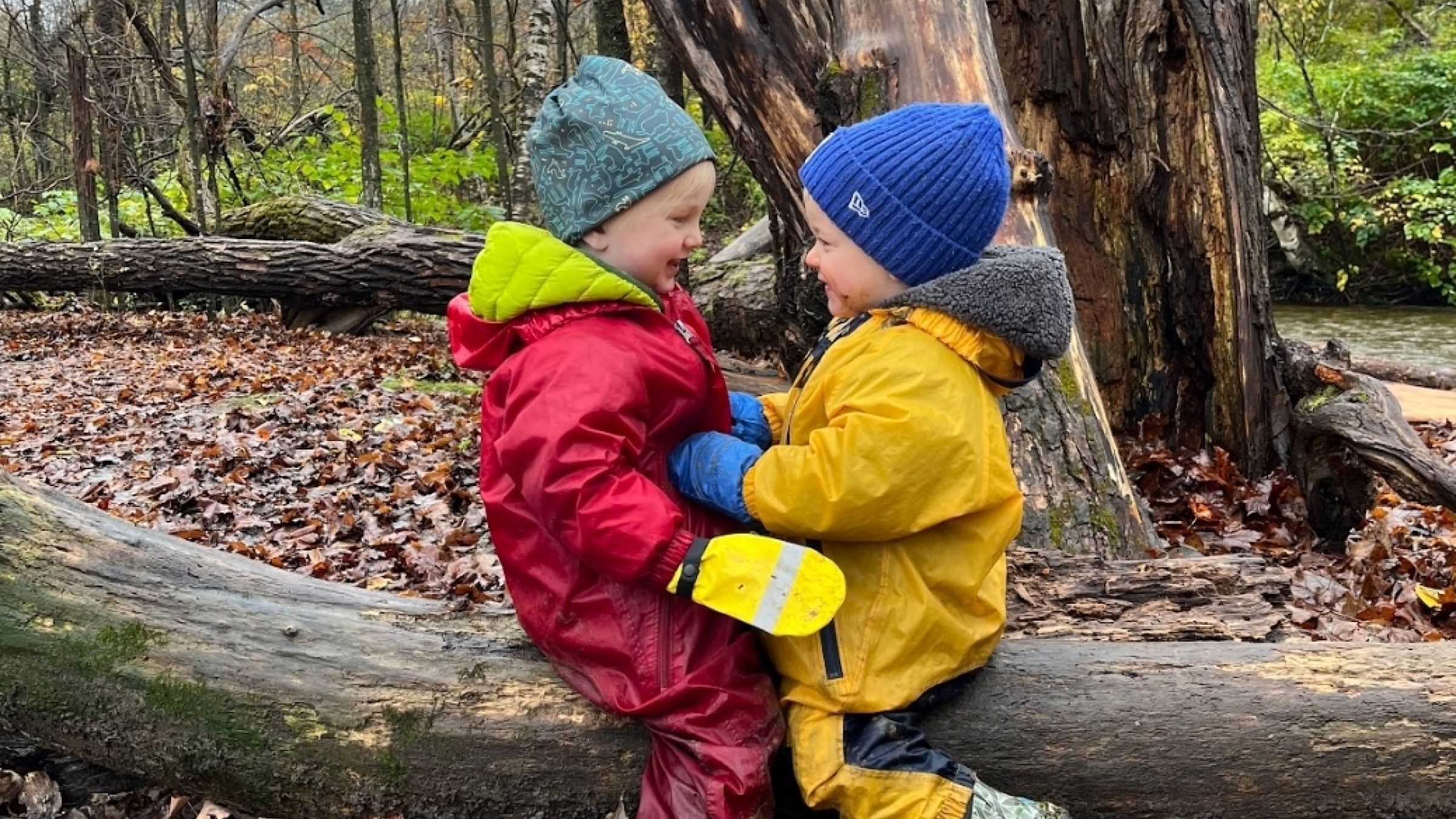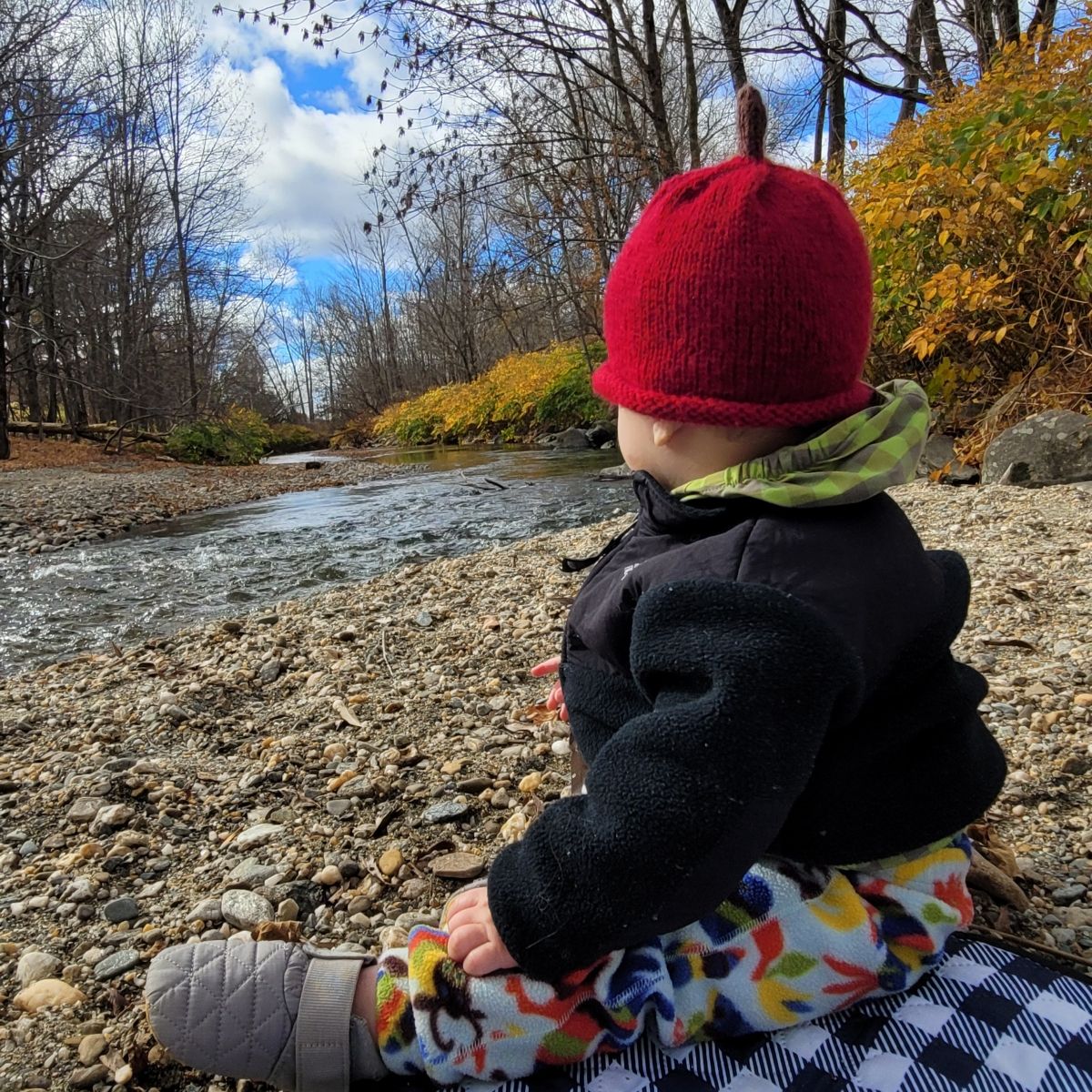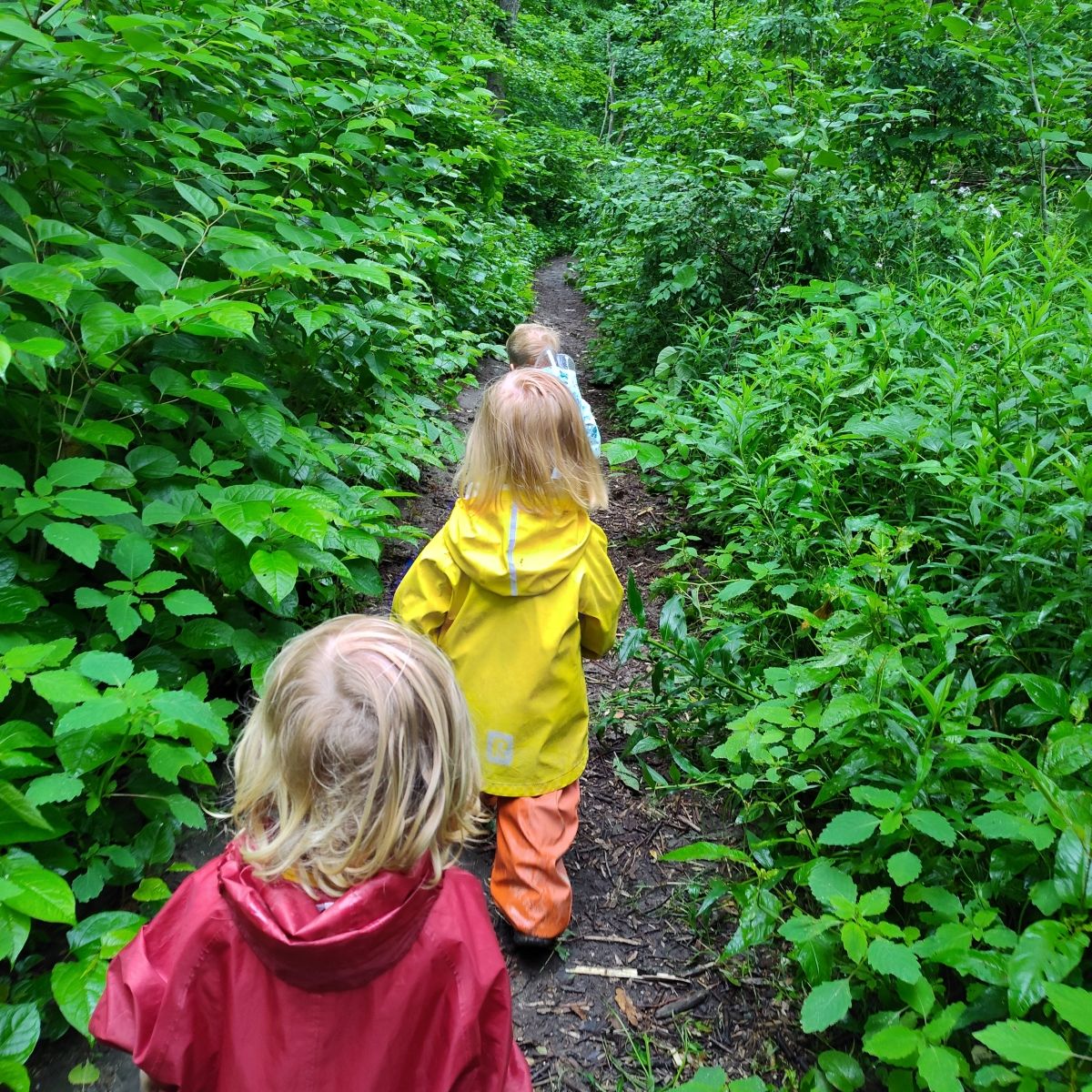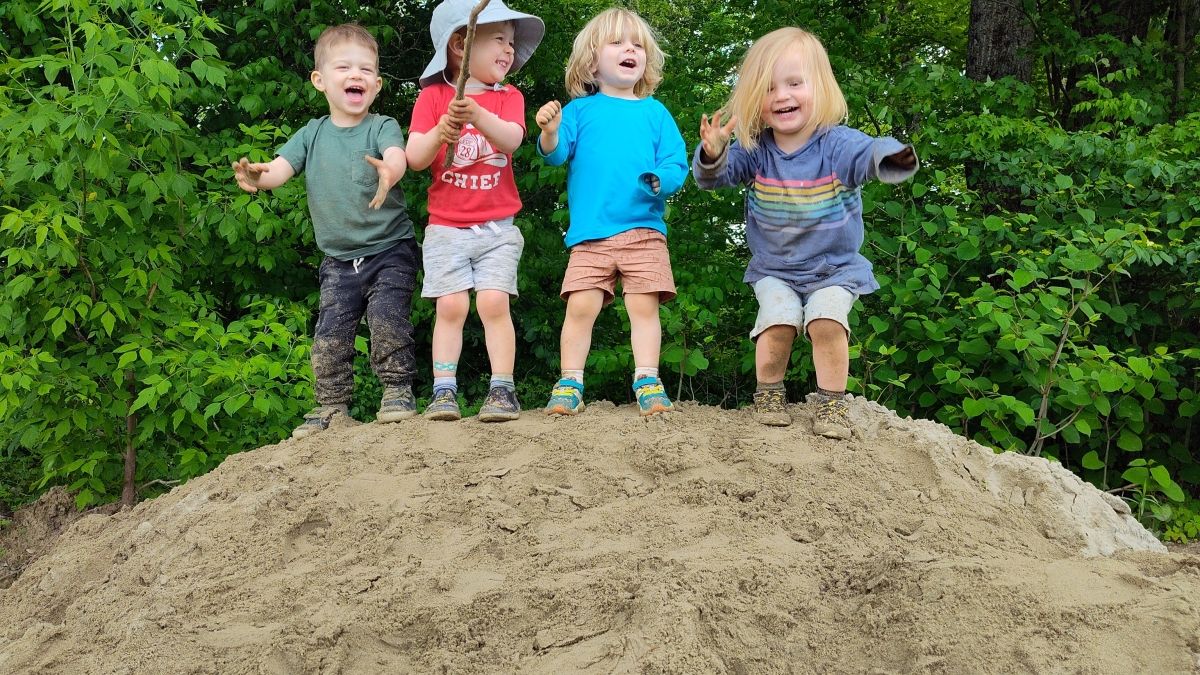
First Roots Underhill is a 5-STAR, Eco-Healthy Certified, nature-based program that currently serves 22 infants and toddlers. The program operates under a larger program, First Roots-Wild Roots, which includes three programs in total across northern Vermont. First Roots Underhill’s team consists of six full-time teachers and three part-time support staff. The program recently implemented a “3-teacher model” in order to maintain lower student-to-educator ratios and prioritize more one-on-one care. This model also minimizes burnout in the field, and better supports the unique needs of each child.
First Roots Underhill values emergent curriculum with hands-on experiences and investigations that allow children to explore topics of interest to them. Through spending a majority of the day outdoors in all weather, children engage in nature-based activities throughout the program’s various nature playscapes, including a traditional playground, a woodland playground, Mills Riverside Park, Mills River, and gardens.
Natural Start spoke with First Roots-Wild Roots' infant/toddler program director, Elena Bourne, to learn more.
What inspired First Roots-Wild Roots to establish First Roots Underhill, the infant/toddler program of the school?

First Roots-Wild Roots recognizes the vital role of early childhood education for families and the overall well-being of our communities. In our area, there is a significant shortage of high-quality, full-time, year-round infant and toddler care, with waitlists continuing to grow. To address this need, we opened First Roots Underhill and First Roots Hinesburg in 2020, two programs dedicated solely to infants and toddlers. We're also coordinating a new program to open in the next few years. This program will serve an additional 120 children from newborns to preschoolers. We’re so excited to continue expanding our impact on our community!
Is there a different approach you take in working with the youngest learners in nature?
With our youngest learners, we focus on offering developmentally appropriate experiences that are both engaging and safe. We believe that people of all ages can explore and learn in nature! We embrace risky play for all ages to support confidence, decision-making, and competence in young children. Educators assess what opportunities are risky versus dangerous while also considering the unique needs and interests of the children in their classes.

Risky play looks different for each age group. For example, a one-year-old may climb to the top of “Snowy Mountain,” persevering through slippery conditions and solving the challenge of gripping with mittens on to reach the top where they are then beaming with pride and confidence, cheering, “I did it!” Risky play could also look like a seven-month-old crawling along a rocky river bank as the water flows quickly past. Educators provide close supervision to create these rich opportunities for growth and learning.
At the end of each day, children leave with dirty, wet, muddy, sticky gear—and full, curious hearts!
What advice do you have for those interested in adding infants and toddlers to their nature-based programs?

Educators often wonder ‘how do I provide more sensory experiences?’ and the best advice I can offer is to spend more time outdoors! All experiences outside in nature are sensory experiences. Nature offers endless opportunities to build emergent curriculum while still meeting required learning standards. Children develop skills in math, science, social studies, language, literacy, and art, all while strengthening their fine and gross motor skills in a way that feels authentic and fun.
All daily routines can happen outdoors with enough preparation. Each of our teachers packs a wagon and carries a backpack filled with essentials for the day: portable diaper mats, first aid kits, extra diapers and clothes, “gear boxes” with binoculars, tweezers, shovels, and more, as well as art supplies. Children carry their water bottle and snack/lunch in their backpacks if they can, or educators put their lunch boxes and even infant bottles in the wagon to have meals outside.
Having the right gear is crucial for a successful outdoor experience–warm, dry layers in the winter, comfortable shoes and sun hats in the summer, and plenty of changes of clothing. Embrace the adventure of all seasons!
How do your programs center meaningful relationships with families, children, and the community? Why is this important?
Building strong, meaningful relationships is at the heart of our program. We recognize that families are a child’s first teachers. By establishing strong connections with families, we can provide the best care for each child. These relationships are based on trust and respect, allowing us to create a consistent and supportive environment both at home and at school.
We host family events multiple times a year and invite families to join us in the classroom to strengthen our relationships and for families to grow their connections within our community. Families feel welcomed and valued as integral members of our First Roots community.
We also foster a sense of belonging by connecting children with their local community. Through regular visits to local parks, libraries, markets, post offices, and nearby public schools, children learn about their place in the world and how to respect and care for others and the environment.